Climate change can reduce the success of interventions that combat infectious disease
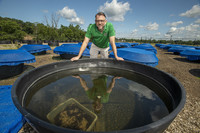
Research from the lab of Jason Rohr, the Ludmilla F., Stephen J. and Robert T. Galla College Professor of Biological Sciences, and collaborators, published recently in Proceedings of the National Academy of Sciences (PNAS), demonstrated significant findings about when to target interventions that control the spread of the tropical disease schistosomiasis.
Three-part Zoom series, “Neuroscience and (your) Behavior,” to launch in March
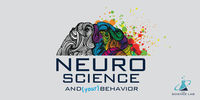
An online, synchronous three-part series, "Neuroscience and (your) Behavior) will be held on Thursdays from 11:30 a.m. to 12:30 p.m. on March 18, 25, and April 1, and will be led by Nancy Michael, associate teaching professor and director of undergraduate studies for Neuroscience and Behavior.
Restorative Justice through Nature: Elsa Barron '21 and Karli Siefker '21
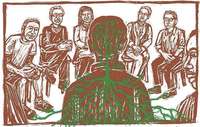
A baby preying mantis will extend its front legs and make itself appear as tall as possible to fend off a hungry spider. This may seem trivial, or perhaps humorous, and indeed, the group of teenage…
The Notre Dame Institute for Advanced Study announces its 2021-2022 class of fellows

The Notre Dame Institute for Advanced Study (NDIAS) has announced its faculty fellowship class for 2021-2022. The 11 residential fellows come from top research universities, including Notre Dame, and have diverse research interests that span the disciplines, including ecology, political science, anthropology, history, food studies, and creative nonfiction. They will come together for a year of intensive collaborative research on Resilience, the NDIAS’s organizing research theme for 2021-2022.
With a Side of Knowledge Podcast: On Mosquito-Borne Diseases and Spatial Repellents—Nicole Achee
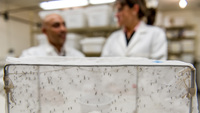
The most recent podcast from With a Side of Knowledge features the EIGH's Nicole Achee. She discusses the impact of mosquito-borne diseases worldwide and her current research on spatial repellents:
Sustainability Career Series Opens Virtual Doors for Students

With a record number of students enrolled in the Sustainability Minor and an increasing interest in careers incorporating sustainability, there was no question of canceling this semester's Environmental Career Trek. In light of the pandemic, the Sustainability Minor partnered with the Meruelo Center for Career Development to host a virtual career event.
Climate change effects should be evaluated seasonally, 42-year study shows

A 42-year study of bunchgrasses in Montana’s National Bison Range by researchers at the University of Notre Dame showed that several vegetation changes occurred seasonally, suggesting that studying climate change on a large-scale, annual basis may not be enough to fully understand and document its effects.
Similar pesticides show consistent effects on freshwater ecosystems
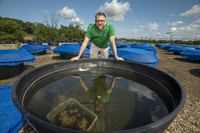
Hundreds of different chemicals exist for managing a variety of agricultural pests, but a new study from the University of Notre Dame showed that evaluating their effects on freshwater ecosystems could be streamlined if the compounds were evaluated in broad classes and types, rather than individually.
Two Notre Dame professors listed as Highly Cited Researchers for 2020

Stuart Jones and Prashant Kamat, both professors in the College of Science at the University of Notre Dame, have been named Highly Cited Researchers by Clarivate Web of Science.
Remote Internships Allow Sustainability Students to Broaden Their Skills While at Home

In spring 2020, like many other students around the world, Notre Dame’s sustainability students were watching their summer internship plans fall through. When Dr. Rachel Novick, Director of Notre…
Neuroscientist Michael earns outreach award from the Society of Neuroscience

Nancy Michael, associate teaching professor of neuroscience and behavior at the University of Notre Dame, earned a Next Generation Award from the Society for Neuroscience (SfN) for her community-based learning programs and course for undergraduates that matches students with community partners that serve a vulnerable local population.
Cancer cells mediate immune suppression in the brain
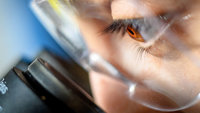
In newly published research in the journal Cell, researchers showed that one type of cell important for immunity, called a myeloid cell, can suppress the immune response — which has the effect of allowing breast cancer cells to metastasize to the brain to form secondary tumor cells there.
Spatial repellents significantly reduce infections of mosquito-borne viruses, study finds

The Iquitos trial was part of a multi-year effort led by scientists at the University of Notre Dame to determine the protective efficacy of spatial repellents to prevent human infection with pathogens that cause diseases such as malaria, Zika and dengue, spread through mosquito bites.
Light pollution may increase biting behavior at night in Aedes aegypti mosquitoes
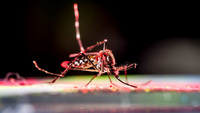
Artificial light abnormally increases mosquito biting behavior at night in a species that typically prefers to bite people during the day, according to research from the University of Notre Dame that was published in The American Journal of Tropical Medicine and Hygiene.
Lamberti to serve as Program Director for National Science Foundation
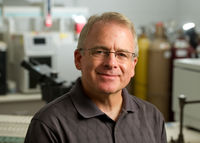
Ecologist Gary A. Lamberti, professor and former chair of the Department of Biological Sciences at the University…
Notre Dame launches a weekly webinar series discussing COVID-19

Starting in October, from 6 to 7 p.m. EDT each Monday, coronavirus experts will discuss a new aspect or angle of the pandemic, such as epidemiology, food security, public health, racial inequities, testing, vaccines and evidence used to inform decisions about opening schools, athletics and businesses.
Researchers identify process for regenerating neurons in the eye and brain

A team of researchers from the University of Notre Dame, Johns Hopkins University, Ohio State University and the University of Florida has identified networks of genes that regulate the process responsible for determining whether neurons will regenerate in certain animals, such as zebrafish.
Zika infections drastically underreported during 2015 epidemic

More than 100 million infections of Zika virus within Central and South America and the Caribbean went undetected between 2015 and 2018, according to a new study.
Nathan Swenson, tree ecologist, to join biology department and lead UNDERC

Nathan Swenson, a professor in the Department of Biology at the University of Maryland, has been named a professor in the Department of Biological Sciences and the Gillen Director of the University of Notre Dame Environmental Research Center (UNDERC).…
